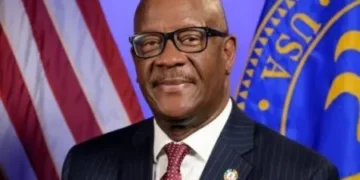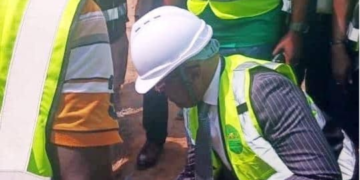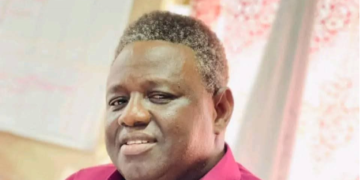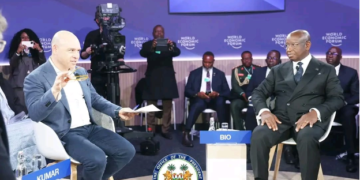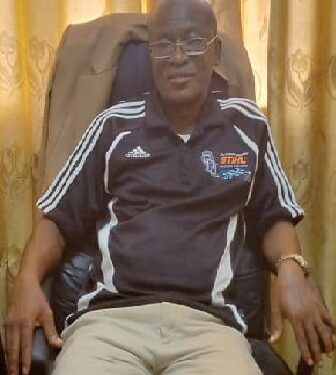By Ing. Yayah A. B. Conteh is the Director of the Mechanical Services Department (MSD) of the Sierra Leone Roads Authority (SLRA).
A nation that is too busy to chart the pathways to national development is just too busy. And that is all there is about it.
I sometimes wonder about the future that lies for our country and, probably many others of the continent as a whole, as we gradually march towards the middle of the 21st century.
It appears to me as if our able-bodied youths who are the future and embodiment of our country, for example, are leaving their bodies temporarily paralyzed due to dormant brains, dormant brains in the sense they cannot gainfully channel towards the betterment of their individual selves, or the improvement of their material lot, let alone the nation.
A good proportion of our able-bodied youths who ought to have thrown their weight behind some agricultural venture, for example, have all migrated from the villages to the main capital and some other provincial cities actively engaged in the riding of motorbikes and tricycles (kekes), driving of taxis and poda-podas in a desperate bid for quick money, whilst the fertile village soils cry aloud to be tilled! The minute proportion of those who remain behind cannot live up to the task of cultivating an abundant yield to even sustain the communities they claim to be their own.
Agriculture has always been, and continues to be, the backbone of the national economy.
Nonetheless, it appears as if agricultural productivity in our country, particularly in the area of rice production, our staple food, is almost non-existent, as vast acres of fertile lands countrywide, which would have helped produce and increase a better yield, still lie uncultivated. No wonder exports of goods and products from our country seem to be far below the imports of goods and services not only in the area of rice production but with so many other expensive minerals in the mining sector too, thus leading to our national economy swaying in a precarious pendulum.
The story has often been told that even some graduate students constitute the component of those actively engaged in either motorbike or tricycle riding, including the driving of taxis and poda-podas too for lack of employment opportunities both in the public and private sectors. But then people take it for granted that the riding or driving of these objects is employment in itself too when no other alternative is available!
Burning the midnight oil to pursue academic excellence is no longer as zealous and challenging as in bygone days. The recklessness and lethargic attitude on the part of the present crop of students towards their studies in various educational establishments is quite appalling and nothing to write home about, thus leaving them with no other option but to indulge in massive examination malpractices, in spite of the abundant facilities at their disposal to tap from, ranging from electricity to internet provision, etc.
If our present government has been caught napping in the past towards the tackling of our socio-economic problems in particular, then they should be wide awake from their slumber by now when these same problems seem to still defy solution in a country of plenty and abundance!
The enormous task ahead of our governments in order to uplift the bulk of its citizens from the clutches of poverty and inequality seem quite unimaginable.
Improving upon the environment where people live, addressing their lack of job opportunities, would prevent them from falling back into extreme poverty. The creation of decent jobs and livelihoods by government, providing social safety nets, ensuring access to services like water, energy, healthcare, credit facilities and boosting political participation would help eradicate poverty and inequality to a very large extent.
War and violence were the fundamental causes for the uprooting of people from their homes and villages and propelling them to seek sanctuary elsewhere, especially in the big thriving cities.
The sooner that people can get back to their homes, engage in meaningful employment and enroll back to school, the better it would be for them to start thriving again.
Governments should position themselves to ensure that their countries have adequate food and water, are resilient to climate change and natural disasters and, above all, can provide employment opportunities for thousands of its citizens not only through agriculture and mining, but also through forestry, fisheries and tourism.
The provision of safe and affordable energy by government to power everything from lights to vehicles to factories to hospitals need not be overemphasized here, as people can’t prosper without it.
The need also for government to critically examine the inequalities and poverty that haunts its citizens so as to leave no one falling behind is quite a daunting undertaking, which requires addressing not only environmental and governance challenges, but related socio-economic issues as well that would make these citizens invulnerable to these problems.
These would all go to advance poverty eradication in all its forms and dimensions.
Ing. Yayah A. B. Conteh is the Director of the Mechanical Services Department (MSD) of the Sierra Leone Roads Authority (SLRA).
Tel. no : 076640364 / 077718805.
E-mail : contehyayahab2020@ gmail.com.



